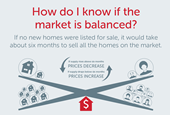
Key insights:
- Large online investment firms known as “iBuyers” provide automated offers to home sellers.
- Before selling with an iBuyer, homeowners should know how their algorithms work to generate offers — and how these offers may differ from a traditional buyer’s offer.
- The easiest way to understand the iBuyer trend is to view them as a wholesaler dealing in the bulk purchase and sale of local properties.
Whether you watch the nightly news or read the daily papers, you may have heard about a new home buying model known as “iBuying.” iBuyers tend to be larger investment firms that make fast offers to home sellers, based on a home value that’s generated by their proprietary algorithms.
So, what are the advantages and disadvantages of using an iBuyer to sell your home? Let’s dive in.
The pros and cons of a fast sale
iBuyers typically make an offer rather quickly and they may also provide a fast path to closing. In the case of a last-minute corporate move or another seller emergency, an iBuyer could help for a fast transition.
But what about the average seller? Research shows that the typical American seller moves less than 15 miles from their previous residence, and <href="#/">homes aren’t exactly lagging on the market in Minnesota and western Wisconsin. For the majority of sellers who need to find a new, local home to purchase, a rapid iBuyer timeline may not be all that advantageous.
Understanding automated online values
When iBuyers make an offer, it’s usually based on their algorithm’s analysis of local market values and nearby, recently sold homes. So if your neighbor with an identical bed and bath count sold last year, the iBuyer may rely heavily on that sale price to determine their offer.
But what if your neighbor’s house still boasted 1970s era shag carpet, while your decor is straight out of a Pinterest board? What about the return on investment of your new roof, picture-perfect landscaping and energy-efficient windows?
While algorithms might get an iBuyer in the general vicinity of the value of a property, they can’t take into account the work you’ve put into your home and the condition it’s in. That’s why it’s always beneficial to have a local REALTOR® help you determine the price of your home before selling. They understand that your perfect rows of petunias and your bright, modern decor will attract many more sellers than your neighbor’s house did — and that you could get a higher offer as a result.
The benefits of testing the market
In real estate, it’s common to say that a home's value is what a buyer will pay for it. But in the case of an iBuyer, the value is not being set by the buyer or the local marketplace — but by a large investment firm.
This limited exposure could mean that sellers who use iBuyers are leaving money on the table, says Edina Realty Regional Manager Craig Kanis. “When you engage with an iBuyer, you’re usually only getting exposed to one buyer and one offer. It’s not a true test of the market. Sellers who list their home on the traditional market get the benefit of exposure — thousands of buyers can see their property online and are able to make a fair offer or even enter a bidding war to get the property they desire.”
The cost of selling with an iBuyer
Like any business, iBuyers need to turn a profit. A recent Forbes article explained that they typically do this by charging a commission, and by discounting their offer to “compensate for the risk they take by providing you with ‘instant’ liquidity.”
And it’s important to understand how that factored-in discount affects sellers.
“It’s easiest to think of iBuyers as a wholesaler, like Costco,” says Kanis. “Because they intend to buy up so many properties, they need to do so at a discount in order to make a profit.”
It makes sense that iBuyers would seek to scoop up discounted properties in bulk. But what about sellers, who have only one property to sell? Unlike the companies who sell their wares to Costco and benefit from smaller margins on a large number of goods, sellers only have one property. Can they really afford to discount it?
“Sellers have to decide if they want to sell their one property at a greater discount, in exchange for the convenience — or if they want to aim for a traditional sale at a fair market offer, which is the equivalent of selling at retail price,” says Kanis.
The long and short of it
For the right seller — one who prefers to move fast, even if it could mean leaving money on the table — using an iBuyer can be advantageous.
But for most sellers, especially those with a home in prime condition, or those who need to earn the most at closing, selling on the traditional market may be the smarter choice.
The bottom line? Get a second opinion from a Realtor. Even if you decide to take the iBuyer route, you’ll go in eyes open when it comes to your home’s true market value.
To learn more about the home selling process we offer at Edina Realty, check out our home seller’s guide or reach out any time to be connected with a local agent who can help assess your home’s true market value.







